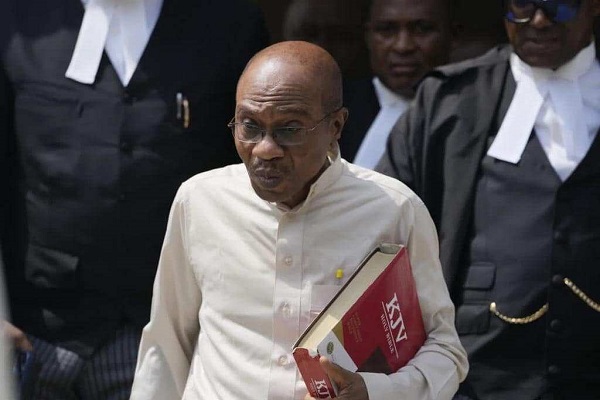The Economic and Financial Crimes Commission (EFCC) has rejected reports that one of its key witnesses, Salawu Gana, justified the vehicle procurement contracts awarded under former Central Bank of Nigeria (CBN) Governor, Godwin Emefiele.
In a statement issued on Tuesday, the EFCC’s Head of Media and Publicity, Dele Oyewale, clarified that Gana’s testimony did not validate the contracts but instead revealed procurement irregularities and leaked bidding information that unfairly favored April 1616 Nigeria Limited.
Key Revelations from EFCC Witness Salawu Gana
- Gana, a former head of the CBN procurement department, testified in court that April 1616 was given confidential bidding information, giving the company an unfair advantage over other competitors.
- He told the Federal Capital Territory (FCT) High Court that the bidding process involved three companies: RT Briscoe, Globe Motors, and April 1616.
- April 1616 submitted the lowest bid at ₦69 million, while:
- RT Briscoe bid ₦77,050,000.
- Globe Motors bid ₦77,179,999.
- The witness revealed that April 1616 was given a "guide" to in-house estimates, ensuring it had a competitive edge in securing the contracts.
- He also confirmed that Emefiele approved the procurement despite the irregularities in the bidding process.
EFCC’s Response to Misrepresentation of Gana’s Testimony
The EFCC insists that Gana’s testimony supports the prosecution's case against Emefiele, refuting claims that the contracts followed due process.
"This is far from the truth," Oyewale stated, emphasizing that April 1616 received privileged pricing details that were not shared with other bidders.
Emefiele’s Ongoing Trial and Allegations
The former CBN governor faces a 20-count amended charge, including:
- Criminal breach of trust.
- Forgery and conspiracy.
- Conferring corrupt advantages.
- Obtaining $6.23 million by false pretenses.
What’s Next?
- The trial continues, with the EFCC expected to present more evidence on the alleged contract irregularities.
- The court will determine whether the procurement violations amounted to corruption and abuse of office.
This case remains one of the most significant corruption trials in Nigeria, with potential implications for public sector transparency and accountability.




